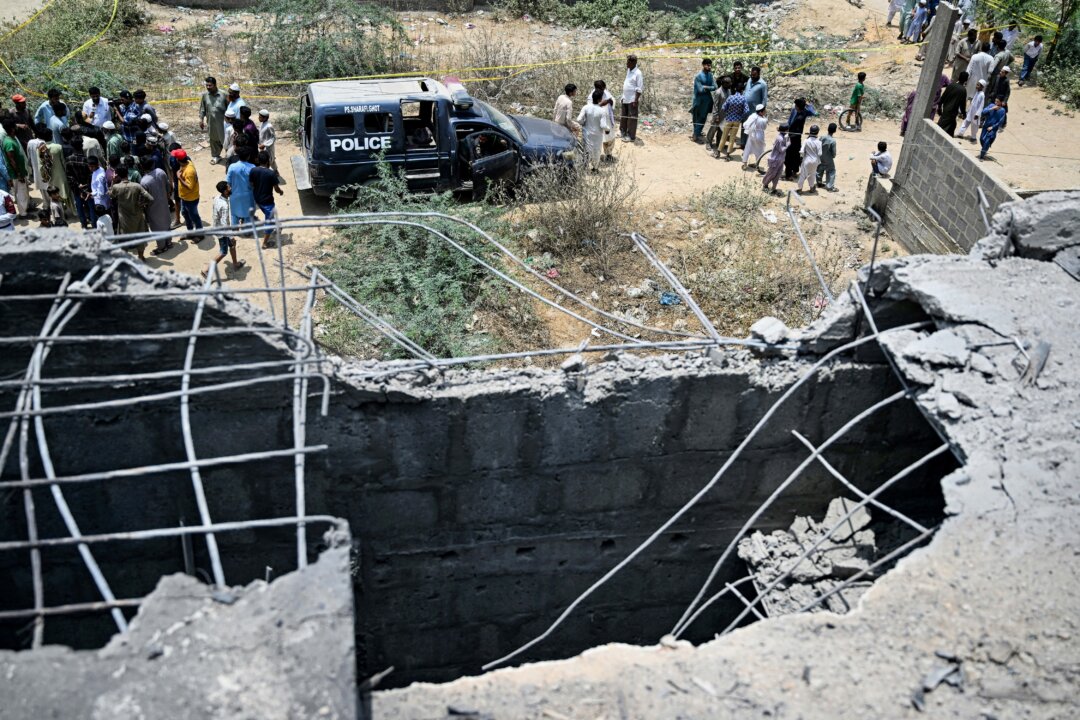Pakistan’s foreign minister, Mohammad Ishaq Dar, told local television that if India stops here, then ‘we will consider to stop here.’
Pakistan said on May 10 that it had launched strikes against Indian military installations in response to India to allegedly targeting three of its own military bases.
The Pakistan armed forces said that its operation included the BrahMos missile storage site in Beas and airbases in Udhampur and Pathankot, according to a state-run media.
Pakistan’s foreign minister, Mohammad Ishaq Dar, told local television that if India stops here, then “we will consider to stop here”.
The Indian military said regarding Pakistan’s military attacks on Saturday that “all hostile actions have been effectively countered and responded to appropriately”.
Prior to the retaliatory strike, Pakistan military spokesperson Ahmed Sharif Chaudhry said that India had fired missiles at key Pakistani military bases in Nur Khan, Shorkot, and Murid early on May 10. These missiles were intercepted by Pakistan’s air defenses and no casualties were reported, he said.
The Indian Ministry of Defense has not publicly commented on the alleged strikes, but stated that its troops are in “a high state of alert” after drones were detected at 26 locations along the international border and Line of Control with Pakistan in Jammu and Kashmir.
Some of the drones were suspected to be armed. The ministry stated that some people were injured when an armed drone targeted a civilian area in Ferozpur on May 10.
The ministry accused Pakistan of violating India’s sovereignty and putting civilian lives in danger by escalating tensions along the western front through drone incursions and the use of munitions.
Multiple hostile drones were detected flying over Amritsar in the Indian state of Punjab at 5 a.m. local time on May 10, which were intercepted and neutralized by Indian air defense systems, it added.
Pakistan military officials on May 10 said it used Fateh-1 missiles to strike targets in India, adding that they caused “heavy losses” and destroyed “multiple enemy hideouts.” The Epoch Times could not independently verify this claim.
Fears that the countries’ nuclear arsenals might come into play spiked when the Pakistan military said a top military and civil body overseeing its nuclear weapons would meet, but the defence minister later said no such meeting was scheduled.
Tensions between the two nations have escalated since an April 22 terrorist attack in the Indian-administered portion of Kashmir, a Himalayan region bordering Pakistan, India, and China, where three gunmen killed 26 people, most of whom were male Hindu tourists.
India has accused Pakistan of involvement, but Pakistan rejected this claim. A group called the Kashmir Resistance later claimed responsibility, which India said was an offshoot of Lashkar-e-Taiba, a terrorist group that has in the past attacked the Indian military and police in Indian-administered Kashmir.
On May 7, India launched strikes on nine sites it identified as “terrorist infrastructure” in Pakistan and the Pakistan-administered region of Kashmir and Jammu in retaliation for the terrorist attack.
Pakistan said that at least 31 of its civilians were killed and nearly 50 others were wounded in the strikes, and the Pakistani prime minister vowed that his nation would “respond decisively” to the attack.The United States has issued a travel warning for Pakistan amid the recent clashes between Pakistan and India. On May 9, the U.S. Consulate General in Lahore, Pakistan, instructed its personnel to shelter in place.
U.S. citizens living in Pakistan were urged to leave areas of conflict or shelter in place if they are unable to leave the areas safely.
“We are aware of reports of military strikes by India into Pakistan. This remains an evolving situation, and we are closely monitoring developments,” the U.S. embassy said in a statement on May 7.
Kashmir, a Muslim-majority region, has been at the center of hostilities over which New Delhi and Islamabad have fought two of their three wars.
India administers the majority of Kashmir, but Pakistan administers the northern and western areas, and China controls territory in the east, some of which was ceded by Pakistan.
Reuters and Chris Summers contributed to this report.

